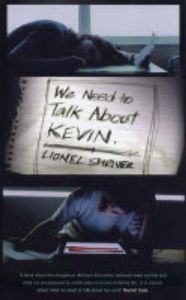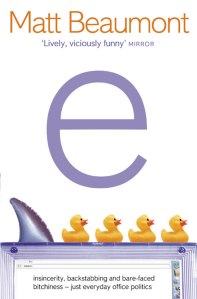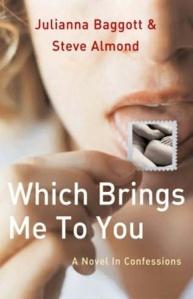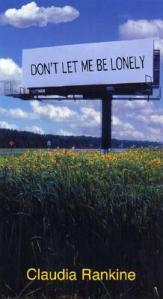I’ve recently been overwhelmed by the number of books on my bookshelf and by how many I’m yet to read. And I started thinking, if it all came to an end and I was only allowed to take 5 books through the Gates of Heaven with me, which would I take? Tough decisions and ruthless cuts to be made.
My first two choices were a no-brainer,
1) We Need to Talk About Kevin – Lionel Shriver

We Need to Talk About Kevin
2) American Psycho – Bret Easton Ellis

American Psycho
Both really fascinating books that I’m sure a lot of you have already read, so I’m not going to go into much detail. I’ve read both of them about two or three times already and each time I read them it’s as if it were for the first time. I think a good book is one where with each read you discover something you haven’t noticed before, and one that also doesn’t offer answers but affirms that seeking them is a necessary part of our humanity. And my opinions of both Kevin Katchadourian and Patrick Bateman, in Shriver’s and Ellis’s novels respectively, are not solid, they’re always changing and I still don’t fully understand them and their motivations; that’s why I keep reading.
The rest of my choices were a little harder to pinpoint. You kinda have to be tactful about this because your favourite books aren’t necessarily the most obvious of choices. And presumably you also wanna laugh whilst you’re in heaven (or hell, whichever direction you’re likely to be heading in, haha). So, with that in mind, my next two choices are:
3) E: A Novel – Matt Beaumont

E: A Novel
I know E is probably a highly obscure choice, but that book is one of VERY few where I’ve found myself constantly laughing out loud or smiling to myself, even on train commutes where people just eye you awkwardly. The entire book is made up of emails between backstabbing colleagues at an advertising firm in central London. There are very few writers who can capture tone and dialogue like this. I’m not sure if the humour is explicitly British and so therefore less funny for others, but Beaumont really captures the true dynamics of an office (anywhere in the world) with ragingly funny characters (ones that we recognise from our own offices) that will remain with me for a very long time. Completely unputdownable; absolutely brilliant.
4) Magical Thinking: True Stories – Augusten Burroughs

Magical Thinking
I was very recently reminded of Augusten Burroughs when reading Jaclyn’s blog (an Augusten Burroughs super fan) and what she says about him is so true, that I realise I couldn’t go to heaven without one of his books in my bag. You read just one of Augusten’s books, and the refreshing ease with which he writes makes you instantly want to know what else he’s written. The most obvious choice would have been his memoir, Running with Scissors (because you really can’t make his childhood story up), but I think the numerous short stories in Magical Thinking would keep me company for longer, dipping in and out of the random hilariousness of his darkly amusing stories. He’s witty, sarcastic, self-centred and very honest. Can’t go wrong.
5) Which Brings Me to You – Julianna Baggott & Steve Almond

Which Brings Me to You
You might not have heard of this book before, but I figure heaven wouldn’t be much fun without a little bit of romance.
Jane and John (yes, really) are of the same kind: ‘I’m not sure there’s a name for us. I suspect we’re born this way: our hearts screwed in tight, already a little broken. We hate sentimentality and yet we’re deeply sentimental. Low-grade Romantics. Tough but susceptible.’
They meet at a wedding and have nameless almost-sex in the coat room. Before proceeding, they decide to exchange letters and tell each other everything about their romantic pasts. In alternating chapters, we learn of the experiences that brought them to this point and if, when they finally meet again, the unflinching truth has been too much: ‘My past is littered with regret, and I’d rather not add you to it. I’d rather not have to fit you into an overcrowded memory.’
This is one of those rare things that is romantic fiction written to a high standard (E.L. James take note). This is romance for the jaded generation, quietly witty and cynically optimistic.
I’ve tried to keep it to 5, but as this is my list I can change the rules when I like, and I’d like to add one more book as a backup. Just in case my bags get lost on the journey or something.
6) Don’t Let Me Be Lonely: An American Lyric – Claudia Rankine

Don’t Let Me Be Lonely
I had to read this in one of my poetry classes back in university and it’s just really stuck with me. Difficult to place this in a specific genre, but it’s written in prose, not verse, and could even be described as an essay; but let’s call it poetry for the purpose of this post.
It’s quite political in nature, has a focus on loneliness and death, and is also quite critical of American society and the idea of The Self that exists in contemporary America. It’s thoroughly engaging, beautifully written and the ideas she explores are really challenging.
Here’s an example from an extract where she’s visiting the Museum of Emotions in London, and she has to play a game, in which she is asked “Were you terribly upset and did you find yourself weeping when Princess Diana died?”:
‘I told the truth and stepped on the NO tile. I was not allowed to continue. The museum employee, who must have had a thing with shame, looked away as I stepped down. Walking out, I couldn’t help but think the question should have been, Was Princess Diana ever really alive? I mean, alive, to anyone outside of her friends and family – truly? The English were very distraught over her death. On the television they showed thousands of mourners leaving flowers in front of the palace. Weren’t they mourning the protection they felt she should have had? A protection they’ll never have? Weren’t they simply grieving the random inevitability of their own deaths?’
Like I said, it gets you thinking; really fascinating stuff.
So that’s my reading list for heaven. Something for every mood. So I wanna know, what’s your 5??









